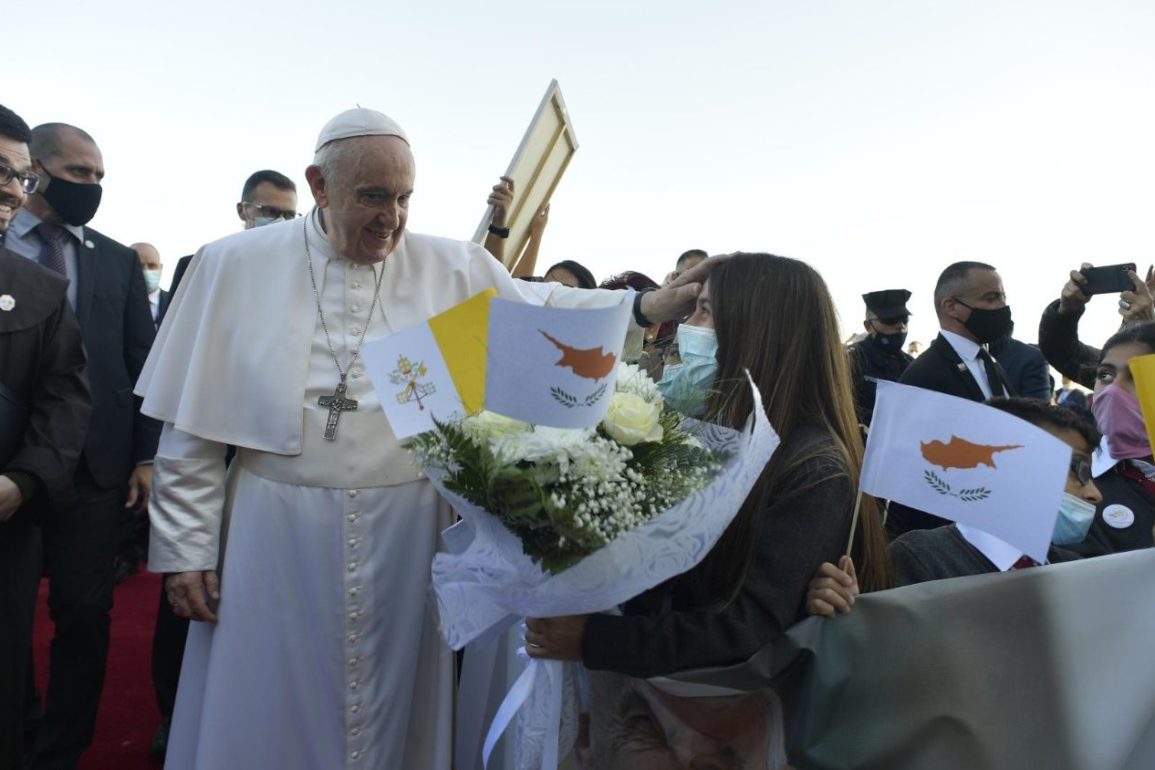Mexican Father Mario Arroyo Martinez shares with Exaudi’s readers his article “Ecumenical and Merciful,” in which he reflects on Pope Francis’ trip to Cyprus and Greece from December 2-6.
* * *
Ecumenical and merciful, will be Pope Francis’ visit to Cyprus and Greece, from December 2-6, but not exempt from certain political tensions. Francis will have to be very careful, while making a demanding appeal to the International Community, not to turn its back on the drama of the refugees, both in Cyprus and in Greece.
He will have to be very careful in Cyprus, where the country’s political authorities expect from the Pepe condemnation of the Turkish unjust occupation of the North of the Island, whose population is mainly Muslim. In fact, at present, the Island is divided in two, a Christian part — two-thirds of the Island –, and another, which is Muslim under Turkish dominion. A huge number of refugees from Syria and other places of the Middle East have entered the Turkish part.
Moreover, in both Cyprus and Greece, important meetings will be held with the Orthodox religious authorities, with a strong ecumenical character. In both countries the majority religion is Orthodox and, especially in the case of Greece, dialogue with Catholicism has been very reluctant. The Pope will have to “chip stone” in this important rubric, with the hope that both communities, primarily the Greek, will open to the ecumenical dialogue. In Cyprus there will be an ecumenical prayer for the migrants; in Greece, there won’t be events of this nature, but only dialogue with the country’s religious authorities.
Undoubtedly, the intense moments of the trip will be the different meetings with refugees that the Pope will hold, particularly that of Lesbos. As is known it’s one of the subjects that most concerns the Pope. To awaken the international conscience in this connection is one of the tasks that his pontificate has proposed programmatically. His concern and interests is such that he has even added a litany to the Rosary — “consolation of migrants” –, for all of us Catholics to keep them present in our prayer and not be indifferent to their fate and destiny.
Pope Francis’ trip has one political stumbling block — the Turkish occupation of Cyprus –, and two fundamental themes: ecumenism and migration. The Holy Father thinks of his trip as a pilgrimage, as he follows in the footprints of the Apostolic Journeys of Paul and Barnabas, evangelizer of Cyprus, and Paul of Athens and Greece. It’s as a return to the sources of the Gospel; hence, it will have a strong spiritual component.
As in many other occasions, the Pope goes ahead, and we thank him for it. Our spirituality, to say it in some way, must not be intimate or be concerned exclusively with our personal problems. The wings of the Catholic spirit are universal — catholic means universal in Greek –and, therefore, they can and must receive the Church’s great intentions: unity with Christians separated from communion with the Pope or ecumenism, and the suffering and consequent reception of our migrant brothers. “There is no other way,” the Pontiff has said in this regard.
Hence, to follow Pope Francis’ trip should enlarge our soul and heart, to make our own the papal anxieties and accompany them with prayer, an ecumenical prayer, a Catholic prayer, a merciful prayer. At the same time, it might lead us to examine ourselves, to see if we, with our conduct, comments, and attitudes, are architects of unity or separation, of mercy or indifference, to take up decidedly the Pope’s attitude, which is Catholic par excellence.
We can do no other than unite in prayer, asking for the fruits of Francis’ trip, with the hope that the trip will bring abundant “surprises of God,” as he called them on a certain occasion. At the same time, it’s also the occasion to pray more intensely for Christian unity, especially with the Orthodox and, very concretely, with the Greeks, more reluctant to dialogue. Together with prayer for ecumenism, prayer for migrants, so that our life of piety is not built neglecting the great social problems. We can draw all this and more from Pope Francis’ trip to Cyprus and Greece.
Translation by Virginia M. Forrester










